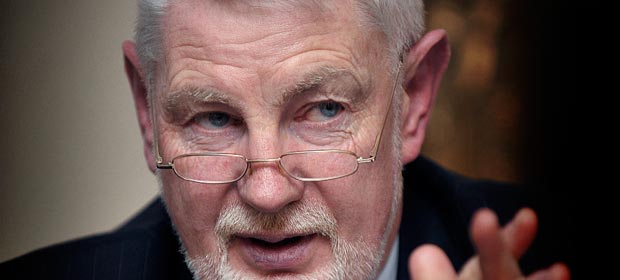Even if every element of the health action plans drawn up on foot of the Croke Park Agreement is implemented in full, it will only provide a partial response to the problems in the health sector, says David Begg.
There has been a significant amount of public debate about the merits or otherwise of the provisions of the Croke Park Agreement. Its detractors argue that the agreement should be torn up as it represents a significant impediment to the correction of the deficit in the public finances, while those who support the agreement, including Congress, point to potential for savings in public expenditure and improved public service delivery by virtue of its full implementation. To fully understand the potential of the agreement it is important to appreciate its architecture.

In each part of the public service an action plan has been agreed which sets out in some detail the range of reforms to be implemented. These action plans are overseen by an implementation body in each of the sectors and an overall implementation body is ultimately responsible for the delivery of the agreement across all areas of the public service. The implementation bodies are essentially the drivers of the agreement. They will intervene to resolve problems where they arise and will monitor the impact of reform on the cost of delivering public services.
In the health sector an extensive action plan has been agreed which sets out a series of principals that are to guide reform, these include:
- New working patters across all areas of the health service.
- More efficient deployment of skills and resources across the health service.
- The lowering of unit costs in the health service through enhanced productivity measures.
- Providing a greater range of services in community settings including on a planned basis in the evenings and at weekends.
- Expanding the roles of health professionals across the heath service to ensure optimal clinical outcomes.
- Increased centralisation and maximising the utilisation of shared services in the health service in areas such as payroll, procurement, IT and Human Resources.
The application of these principles has already resulted in some very significant changes. These include:
- The HSE has successfully redeployed staff to address impact of recent redundancies/early retirements. Despite the significant staff reduction services continued to be provided without adverse effect.
- Significant reform of the medical laboratories system with agreement secured on staff moving to a longer working day and, where needed, an extended working week and less costly on call and call out arrangements.
- The health service ‘footprint’ is being reduced, with offices and smaller facilities closing or reducing and staff transferring to other facilities with consequential savings.
- A single central unit for processing medical card applications has been established and an on line facility for applications available. This will result in savings and improved service.
- A long-awaited National Procurement structure for the health system has been agreed with unions and the HSE, which will facilitate millions of euro of savings in services and goods purchased by the HSE.
- 1,000 Community Welfare Officers transferred from the HSE to the Department of Social Protection.
I have little doubt that the continued roll out of the health action plan will see further improvements in the quality and the delivery of health services. However, even if every element of the health action plan is implemented in full, this will only provide a partial response to the problems in the health sector.
The proposal for a system of Universal Health Insurance needs to be worked through and simply attempting to copy and import the system in a country like the Netherlands could be hazardous
Congress has been trying for some years to get an engagement with Government on meaningful reform of the health service. We commissioned and published an extensive critique of the public health service written by Dale Tussing and Maeve -Ann Wren in an attempt to engage the Government but without any success. The newly elected Government has set out an ambitious programme of reform for the public health service. Many of the commitments in the Programme for Government are to be welcomed, including the proposal to implement a system of Universal Health Insurance. This proposal needs to be worked through and simply attempting to copy and import the system in a country like the Netherlands could be hazardous. Congress is keen to play our part in the shaping of a health service that can meet the needs of all citizens on the basis of need. The Croke Park Agreement is a vital component in achieving this aim. Lessons from around the world have taught us that if you want to get major reforms in any large organisation it is easier to achieve them by agreement.
David Begg is General Secretary of the Irish Congress of Trade Unions.

